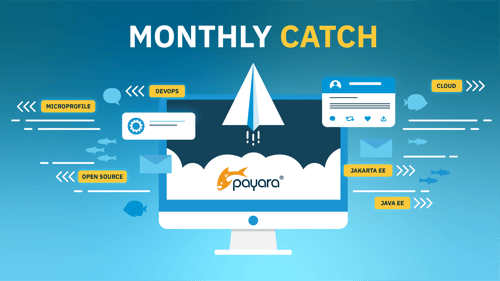Payara Enterprise Connectors
Originally published on 02 Sep 2020
Last updated on 08 Oct 2020
 by Gaurav Gupta
by Gaurav Gupta
Payara Platform Enterprise Edition is designed to run mission-critical Jakarta EE applications in production environments with increased stability and security. Payara Enterprise is fully supported and offers access to production-oriented features and developer tools - including a wide range of supported IDE extensions, build tool plugins, test containers and connectors available under the Payara Enterprises repository.
Payara Enterprise IDE plugins and developer tools offer an edge to Payara Enterprise customers with the availability of the hot-fixes and patches. Click here for a visual comparison between Payara Community and Payara Enterprise Editions.
Build Tools
Payara’s build tool plugin can automate the creation of war archives or executable Uber JAR bundle of the application and run the Payara Micro application in-place from source code.
Payara Micro Maven Plugin
Payara Micro has a Maven plugin that can start and stop a Payara Micro instance and create an Uber JAR bundle of the application and Payara Micro.
To incorporate the maven plugin into your project POM file, add the plugin snippet in the plugins section of your pom.xml, as shown in the following example:
|
<plugin> <groupId>fish.payara.maven.plugins</groupId> <artifactId>payara-micro-maven-plugin</artifactId> <version>1.1.0</version> </plugin> |
Plugin Goals
bundle: This goal bundles the attached project’s artifact into an Uber JAR with the specified configuration.
Usage: mvn payara-micro:bundle
start: This goal starts Payara Micro with the specified configuration.
Usage: mvn payara-micro:start
stop: This goal stops Payara Micro with the specified configuration.
Usage: mvn payara-micro:stop
More Information:
https://docs.payara.fish/enterprise/docs/5.21.0/documentation/ecosystem/maven-plugin.html
Source Repository:
https://github.com/payara/ecosystem-maven/tree/master/payara-micro-maven-plugin
Release Repository:
Payara Micro Gradle Plugin
Payara Micro has a Gradle plugin that can start and stop Payara Micro Enterprise and create an Uber JAR bundle of the application and Payara Micro Enterprise.
To incorporate the Gradle plugin into your project GRADLE file, add the plugin snippet in the plugins section of your build.gradle, as shown in the following example:
|
plugins { id “fish.payara.micro-gradle-plugin” version “1.0.4” } |
Plugin Tasks:
bundle: This task bundles the attached project’s artifact into an Uber JAR with the specified configuration.
Usage: gradle microBundle
start: This task starts Payara Micro with the specified configuration.
Usage: gradle microStart
stop: This task stops Payara Micro with the specified configuration.
Usage: gradle microStop
More Information:
https://docs.payara.fish/enterprise/docs/5.21.0/documentation/ecosystem/gradle-plugin.html
Source Repository:
https://github.com/payara/ecosystem-gradle/tree/master/payara-micro-gradle-plugin
Release Repository:
Payara Micro Maven Archetype
Payara Micro has a Maven archetype that can create a sample Payara Micro application quickly. To create a new project from the archetype, you need to run the following command:
| mvn archetype:generate -DarchetypeGroupId=fish.payara.maven.archetypes - DarchetypeArtifactId=payara-micro-maven-archetype |
More Information:
https://docs.payara.fish/enterprise/docs/5.21.0/documentation/ecosystem/maven-archetype.html
Source Repository:
https://github.com/payara/ecosystem-maven/tree/master/payara-micro-maven-archetype
Release Repository:
https://nexus.payara.fish/service/rest/repository/browse/payara-enterprise/fish/payara/maven/archetypes/payara-micro-maven-archetype/
Payara Platform IDE Plugins
The overall goal of an IDE plugin is the ease of use, effective platform support, and improved developer productivity. When talking about ease of use, the first IDE that comes to mind is the Apache NetBeans IDE.
Apache NetBeans IDE
The Apache Software Foundation maintains the NetBeans IDE. Apache NetBeans IDE provides out-of-the-box support for Payara Server Enterprise to easily deploy and manage applications from the NetBeans IDE interface by selecting the target Payara Server in the application properties.

The Apache NetBeans IDE also provides first-class support to create and run Payara Micro maven web applications from the NetBeans interface. (Payara Micro is the microservices-ready version of the Payara Server).

More Information:
https://docs.payara.fish/enterprise/docs/5.21.0/documentation/ecosystem/netbeans-plugin/README.html
Source Repository:
https://github.com/apache/netbeans
Download:
https://netbeans.apache.org/download/index.html
Eclipse IDE Plugin
Payara Server Enterprise is easily configured and managed in Eclipse IDE by just installing Payara Tools from the Eclipse Marketplace.

Payara Tools in Eclipse IDE enables publishing of projects to Payara Server, as well as controlling Payara Server from the Servers tab within Eclipse IDE.

More Information:
https://docs.payara.fish/enterprise/docs/5.21.0/documentation/ecosystem/eclipse-plugin.html
Source Repository:
https://github.com/payara/ecosystem-eclipse-plugin
Release Repository:
Eclipse Marketplace:
https://marketplace.eclipse.org/content/payara-tools
Visual Studio Code Extension
Made by Microsoft, you'd be forgiven for thinking this works only with Windows. But it works on Linux and a Mac, too. Out of the box, it's just a code editor with syntax highlighting. Everything needs adding as extensions. Before installing the Payara VSCode tools, make sure to install the Java Extension Pack, by Microsoft.

The Payara VSCode extension enables developers to easily configure Payara Server Enterprise and deploy applications.
Payara VSCode extension can also detect a Payara Micro application and enables developers to run and debug the Payara Micro maven or gradle web applications from the VSCode.
More Information:
https://docs.payara.fish/enterprise/docs/5.21.0/documentation/ecosystem/vscode-extension/README.html
Source Repository:
https://github.com/payara/ecosystem-vscode-plugin
Release Repository:
Visual Studio Marketplace:
https://marketplace.visualstudio.com/items?itemName=Payara.payara-vscode
IntelliJ IDEA
IntelliJ IDEA is developed by JetBrains. It’s important to note here that the free version doesn’t support Jakarta EE, just Java SE. The paid version, called ‘Ultimate’ works with Jakarta EE. Payara IntelliJ IDEA tools provide integration of the Payara Platform Enterprise Editions into IntelliJ IDEA Ultimate.-3.png)
More Information:
https://blog.payara.fish/payara-platform-support-for-intellij-plugin
Release Repository:
JetBrains Marketplace:
https://plugins.jetbrains.com/plugin/15114-payara-tools
Arquillian Containers
The Payara Arquillian containers provide various Arquillian containers for integration testing with Payara Enterprise.
The containers available for the following distributions:
- Payara Micro Managed
- Payara Server Remote
- Payara Server Managed
- Payara Server Embedded
More Information:
Source Repository:
https://github.com/payara/ecosystem-arquillian-connectors
Release Repository:
https://nexus.payara.fish/service/rest/repository/browse/payara-enterprise/fish/payara/arquillian/
Cloud Connectors
The Payara Cloud Connectors are a collection of JCA adapters for use with various popular cloud messaging providers. These connectors can be deployed to Payara Server Enterprise or Payara Micro Enterprise.
The available cloud connectors are:
- Apache Kafka
- Amazon SQS
- MQTT
- Azure Service Bus
More Information:
https://docs.payara.fish/enterprise/docs/5.21.0/documentation/ecosystem/cloud-connectors/README.html
Source Repository:
https://github.com/payara/Cloud-Connectors
Release Repository:
If you’re running Payara Server or Payara Micro in production environments, you should be using Payara Platform Enterprise - our stable and supported software designed for mission critical production systems and containerized Jakarta EE (Java EE) and MicroProfile applications. Quickly and easily deliver Java EE / Jakarta EE apps in any environment: on premise, in the cloud, or hybrid with enterprise-grade security.
Learn more about the features and benefits of a Payara Enterprise Subscription:
Related Posts
The Payara Monthly Catch - August 2025
Published on 02 Sep 2025
by Dominika Tasarz
0 Comments
The Payara Monthly Catch - July 2025
Published on 31 Jul 2025
by Chiara Civardi
0 Comments

